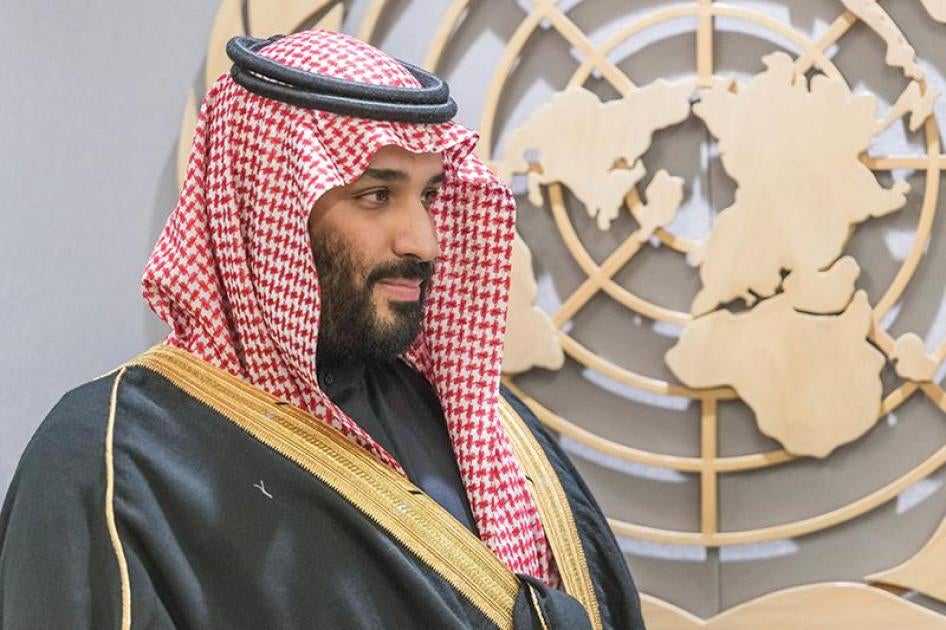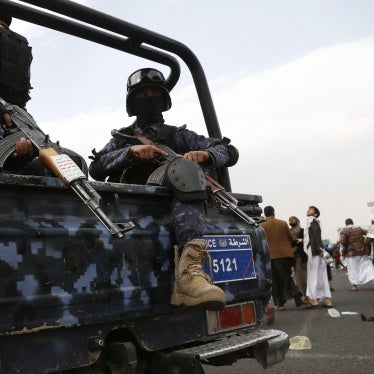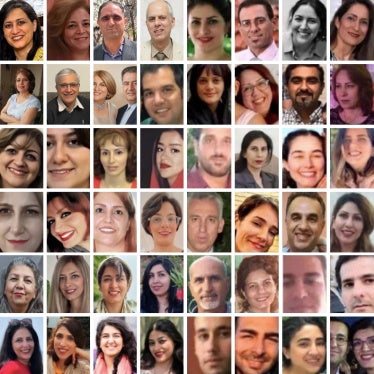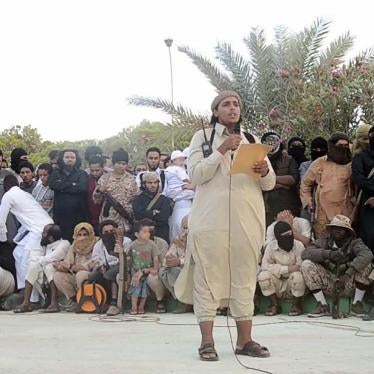After generating some positive press earlier this summer by lifting the ban on women driving, Saudi Arabia is once more the target of reproach. In August, the country’s notorious terrorism court sought the death penalty against Israa al-Ghomgham, a female activist. Reports about Ghomgham’s fate centered on the fact that she is a woman and on questions about whether other detained female activists—including scores who had campaigned over the years to end the driving ban—would now face the death penalty as well.
But what has received less attention is the real focus of her activism, which is what led to her initial arrest and jailing in December 2015, along with her husband. They, and the four other men on trial with them, weren’t campaigning for women’s rights. Rather, they sought better treatment of the country’s Shiite population. Shiites make up 10 to 15 percent of Saudi citizens but face rampant discrimination and exclusion.
Saudi Shiites have virtually no religious freedom: They are not allowed to build their own mosques or any public places of worship outside of Shiite-majority areas. The police have even shut down private halls for communal worship. Shiite students are generally kept out of military and security academies, and they rarely find jobs within the security force. And the government has almost completely excluded them from high-level posts, so the country currently has no senior Shiite diplomats, police, or high-ranking military officers. (The country has only ever appointed one Shiite ambassador, Jamil al-Jishi, who was Saudi ambassador to Iran between 1999 and 2003.) Saudi Arabia has never seen a Shiite woman fill a high-level political position.
On a more practical level, there are no Shiite judges or prosecutors anywhere to be found in the criminal justice system and certainly not in the terrorism court. Shiites are regularly denied access to justice, are arbitrarily arrested, and face discriminatory verdicts. Scores of them have described the stable of religiously motivated charges they face in court, including the standard charges of “cursing God, the Prophet, or his companions.” Public schools have taught generations of Saudi children to fear and hate their Shiite fellow citizens. Textbooks have urged denigration of Shiite religious practices, describing them as grounds for expulsion from Islam and punishable by an eternity in hell. (In a welcome development, the government appears to have removed some offensive language and images from its sixth-grade textbooks for this school year, but the Ministry of Education has yet to post all of the textbooks online for confirmation of whether the changes are consistent across all grade levels.)
During the hopeful initial days of the Arab Spring in 2011, the Shiite community thought that it too might gain some liberty and equality. Tens of thousands of Shiite protesters came out in Saudi Arabia’s Eastern Province, where many of them live, to demand civil rights. But the government swooped in to repress the demonstrators, jailing hundreds and ultimately executing a leading Shiite cleric who supported the protests, Nimr al-Nimr, in 2016. Riyadh’s message was clear.
The late King Abdullah, who was on the throne until 2015, often paid lip service to tolerance of religious minorities. He even established the King Abdullah Bin Abdulaziz International Centre for Interreligious and Intercultural Dialogue—alas, in Vienna. But within the country’s borders, tolerance remained a dirty word. In 2013, the government sentenced Mikhlif al-Shammari, a longtime Sunni activist who promoted greater tolerance for Saudi Shiites, to five years in prison for the supposed crime, among others, of “sowing discord.” He was barred from traveling for 10 years. In 2014, the courts sentenced him to another two years and 200 lashes, in part for “sitting with Shiite” citizens, that is, meeting with them in their homes.
Hope among some in the Shiite community rose once more after King Salman came to the throne. His heir apparent, Crown Prince Mohammed bin Salman, has toured the world dressed in blazers and jeans—even chatting with Oprah, Tesla’s Elon Musk, and Google co-founder Sergey Brin—to tout his progressive plan for social and economic liberalization. He has promised a new era of tolerance, “open to the world, to all the religions and traditions of its people.” Mohammed bin Salman’s moves against the hard-line religious police in 2016, including taking away their power to arrest people, have earned him credit in the Eastern Province and abroad. But the ongoing prosecution of Shiite activists and the continued discrimination against their community, including against Ghomgham, reveal the emptiness of his promises.
What’s notable is that the crown prince’s “liberalization” schemes, such as ending the driving ban or allowing concerts and movie theaters, have clearly been top-down efforts—deliberate displays of his absolute authority to bestow gifts to his people. After all, most of these schemes do nothing to change the underlying structure of Saudi society and are broadly popular. It makes sense that he’s less willing, in contrast, to do something to truly end the discrimination against Shiites, which would require legislating religious equality. That would be easily construed as a concession to a small group of Saudis for reform. For the regime, that’s unacceptable.
Of course, also helping maintain the status quo is the United States, Saudi Arabia’s major ally, which has been happy to let anti-Shiite discrimination slide. US Vice President Mike Pence has had a lot to say about the persecution of Christians, Buddhists, Yazidis, Jews, and even Sunnis in Iran, but nothing about the persecution of Shiite Muslims in Saudi Arabia or the severe lack of religious freedom in the country. Although the State Department’s annual report on the world’s worst violators of religious freedom has long designated Saudi Arabia as a “country of particular concern,” former Secretary of State Rex Tillerson, like his predecessors under the Obama administration, waived the sanctions that typically accompany being named as a country that engages in “severe violations of religious freedom.” New Secretary of State Mike Pompeo has given no indication that he will lift the waiver.
Meanwhile, Iran and Saudi Arabia heighten regional tensions by playing volleyball with reports about the mistreatment of minority communities in each other’s respective societies; the Saudi press highlights persecution of Iran’s Sunni, Kurdish, and Arab populations, while the Iranian press documents arrests and persecution of Saudi’s Shiites. The longer this goes on, the harder it will be to calm sectarian tensions in a region that has seen countless wars—many involving the West—over them.









